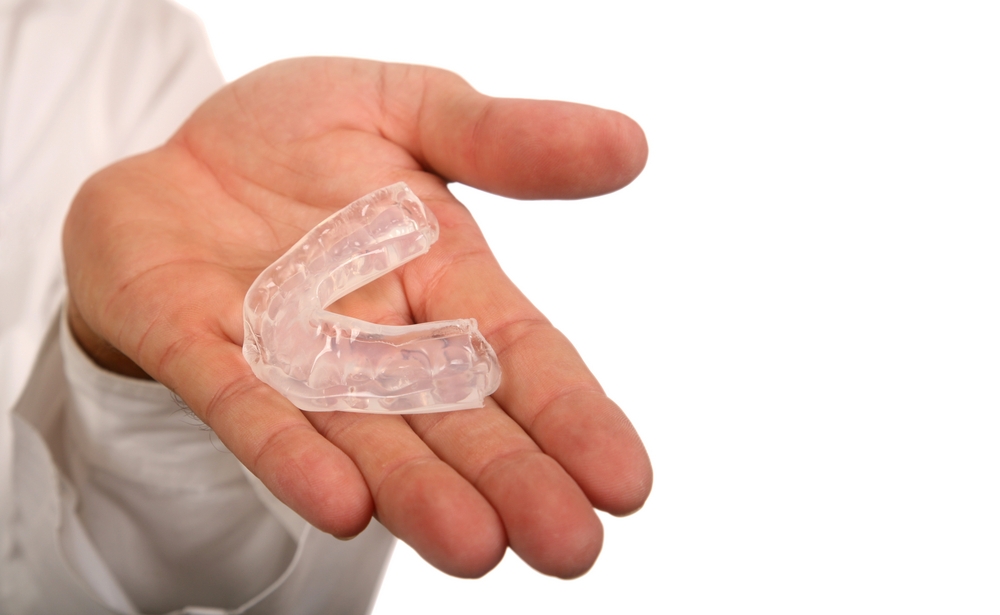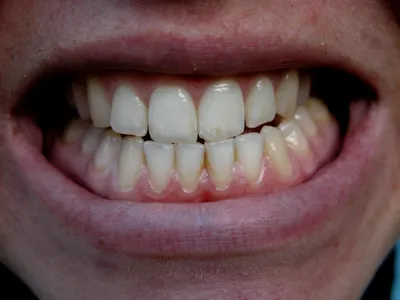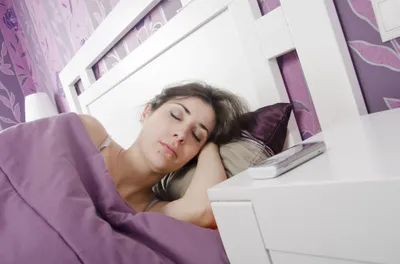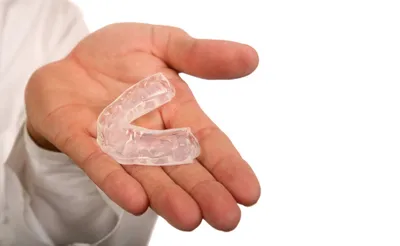What is Bruxism?
Chronic teeth grinding, or bruxism, is a condition characterized by the clenching of the jaw and grinding of the teeth, usually during sleep.
If you sleep alone, it’s often difficult to tell if you suffer from bruxism. However, there are telltale signs and symptoms that can help you identify yourself as a teeth grinder as well as a few effective tips to give your poor jaw and teeth a good night’s rest…
Symptoms of Teeth Grinding
If you wake up with a sore jaw, sore gums, or sensitive teeth, you may be grinding your teeth while you sleep. Upon waking up, you will often notice the following telltale symptoms of bruxism:
- You may catch yourself in the act or wake to the sound of grinding teeth.
- Your jaw or teeth may be sore and tender in the morning.
- You may notice extreme sensitivity to hot and cold temperatures or feel pain when brushing teeth.
- You may notice torn tissues inside your mouth and on the inner linings of your cheeks from teeth gnashing
- Your gums may be tender, inflamed, or bleed.

Ask Your Partner to Observe You While You Sleep
If you sleep in the same bed as a spouse or partner, or even share a room with a sibling, ask them to observe you while you slumber to confirm that you grinding your teeth during the night.
Record Yourself During Sleep
Don’t fret; if you live alone, you can still confirm a case of bruxism by recording yourself while you sleep. Use a pocket tape recorder or smart phone and press record as you’re falling asleep and then listen to the recording in the morning for signs of grinding and teeth gnashing.
Visit Your Dentist
Another way to diagnose bruxism is to call on a professional. Your dentist can examine your mouth and jaw for symptoms such as jaw tenderness, ground-down teeth, and damage. Your dentist can also prescribe a mouth guard to prevent future grinding and protect your teeth and jaw.
Break Bad Chewing Habits
To help you break bad teeth grinding habits, look at your go-to stress habits in daily life. For instance, do you chew on pencils and pens when stressed at work? This daytime bad habit can transfer to a nighttime bad habit. So be conscious of bad chewing behaviors during the day to ensure you are only chewing on food.
Avoid Stress
Reducing your stress level is another way to combat bruxism. Most teeth grinding cases are linked to further stress during sleep. So be sure to avoid using backlit electronics like smart phones, tablets, and laptops at least 3 hours before bed. Also, get adequate exercise, take regular yoga classes, meditate, listen to soothing music, take baths before bed, and work on banishing stress from your life.
Examine Your Diet
What you eat when you’re awake can have a lot to do with your mood and sleep patterns. For instance, those who lack certain essential vitamins and nutrients in their diets are prone to restless slumber and teeth grinding. If you are calcium or magnesium deficient (2 vitamins that prevent muscle spasms while promoting healthy muscle function and nervous system support), take a daily multivitamin or supplement with meals.
Skip the Caffeine at Night
Caffeine from coffee, tea, soda, energy drinks, and chocolate are culprits when it comes to sleep deprivation. So do yourself and your jaw a favor, skip the stimulants in the evening hours to ensure a more restful night’s sleep.
Create a Relaxing Environment
Stress reduction is mental as well as physical (i.e., exercise and diet). And creating a relaxing environment at home, particularly before bed, will promote a more restful sleep with less risk of teeth grinding during the night. Impose nightly activities that promote a relaxing environment before bed—such as baths, drinking herbal tea, mediation, massage, and use a heating pad or hot cloth on your jaw to keep it supple during rest.












